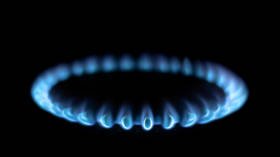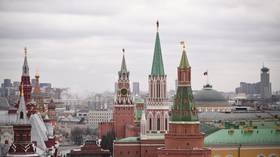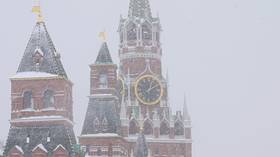Gazprom halts gas transit to Germany via Yamal pipeline
Deliveries of Russian natural gas to Germany through the Yamal-Europe pipeline have been completely halted, data from the country’s transport operator, Gascade, revealed on Tuesday morning.
The suspension of the flow comes after a weekend in which the volume being sent through the network dropped significantly, just as demand for energy in both Russia and the rest of Europe reached its winter peak. On Monday, it was reported that state-owned giant Gazprom, the system’s operator in Russia and Belarus, had booked no capacity at all for transiting natural gas on Tuesday.
The Yamal-Europe transnational gas pipeline runs from northwest Siberia to Frankfurt-an-der-Oder in eastern Germany via Belarus and Poland. Last year, around one-fifth of all natural gas sent to Western Europe went via Belarus. Energy supplies through the system vary based on consumption, including within Russia, which Gazprom prioritizes over sending fuel abroad. Temperatures have plummeted in Moscow and other large Russian cities this week.
Flows through the pipeline dropped to 6% of capacity on Saturday and 5% on Sunday, before eventually falling to zero on Tuesday morning. Due to the winter cold and the restricted supply, European energy prices have soared.
Officials in the West have accused Moscow of playing politics with the supply of gas to the rest of Europe, allegedly with the aim of forcing the EU to approve the controversial Nord Stream 2 pipeline, which is yet to be certified, but is ready to operate. The Kremlin has repeatedly denied these allegations, with Gazprom noting that it continues to fulfill its contracts.
Speaking to the Financial Times, Ronald Smith, senior oil and gas analyst at Moscow financial group BCS, explained that the drop in supply may be due to Russia having prioritized its storage to keep its own citizens warm as some parts of the country endure frigid temperatures.
“It is possible that cold weather here in Russia is limiting Gazprom’s export capacity to an extent, and/or they are working to keep Russian storage as full as possible,” he said.















